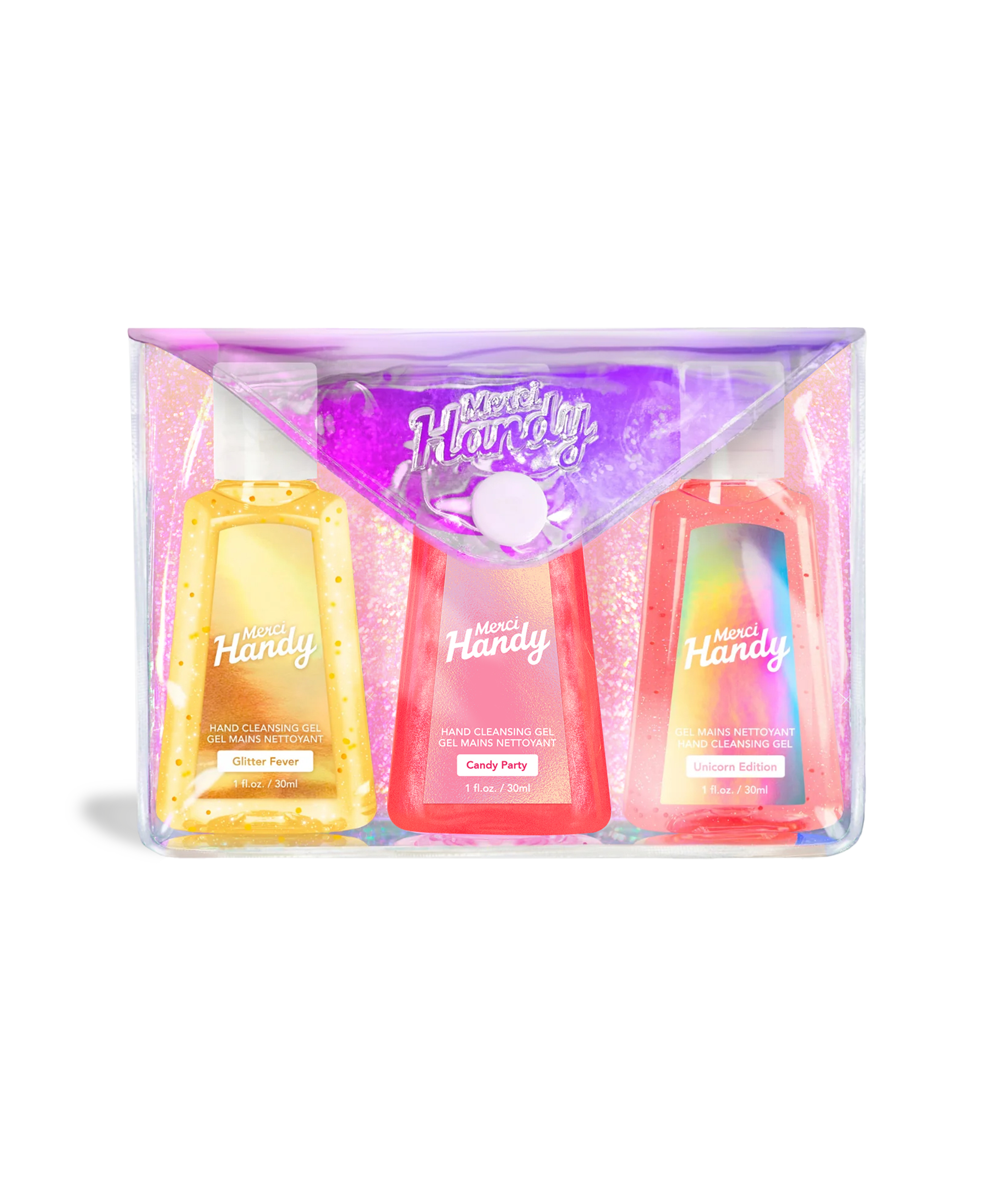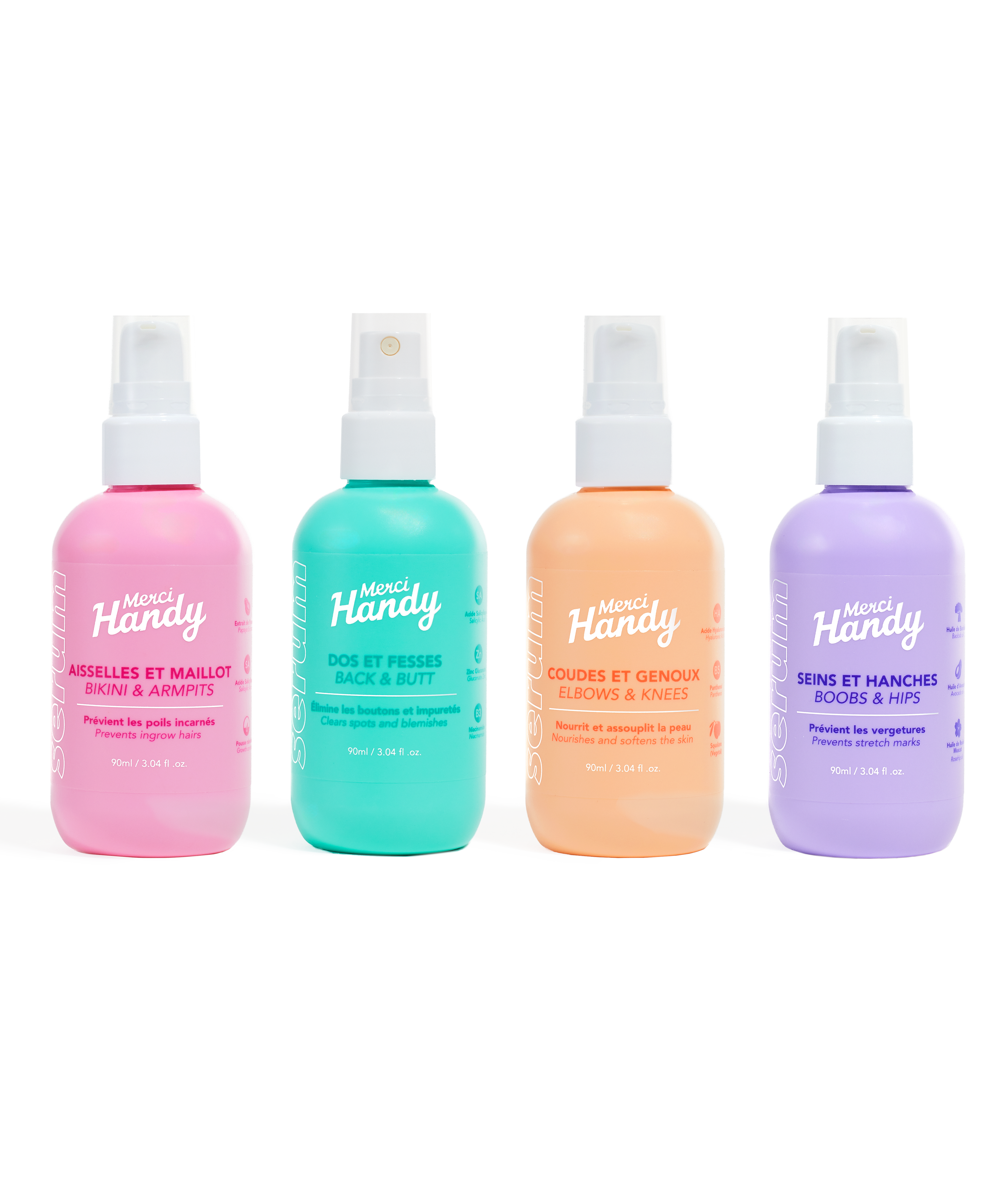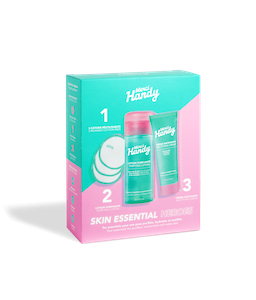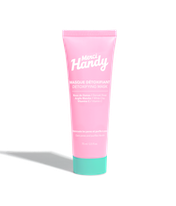Comment l’utiliser ?

1. Verse les pastilles magiques dans ta bouteille réutilisable Merci Handy (disponible dans nos Starters Packs)

2. Remplis-la d’eau (très) chaude.

3. Laisse agir sans fermer la bouteille pendant 90 minutes top chrono.

4. Ferme la bouteille et agite doucement ton flacon : ton gel douche est prêt !

5. Une fois ton gel douche terminé, tu peux laver et réutiliser la bouteille comme par magie.
Les bénéfices ✌️
🌱 Bon pour toi
formule d’origine naturelle au pH neutre pour ta peau, vegan et sans sulfates et autres ingrédients controversés.

🌍 Bon pour la planète
formule sans eau 10 fois plus concentrée, bouteille en verre réutilisable à l’infini, transport plus responsable (on transporte uniquement les principes actifs, pas les 80% d’eau qui composent un gel douche classique, et que tu as déjà chez toi) et 33 fois moins de plastique utilisé qu’un gel douche classique.


Fabriqués en France (sur Terre).

1 gel douche rechargeable = 22 bouteilles plastique en moins sur Terre par an*
Voir nos articles sur nos engagements 👍*sur la base de 14ml de gel douche en moyenne par français et par jour.
(NDLR : Cette étude a même pris en compte ta petite sœur Julia qui prend 4 douches par jour en chantant Cardi B)

notre gel douche est...

savais-tu que...


Un gel douche classique =
20% de principes actifs, dans une bouteille en plastique jetable.

Un gel douche rechargeable à infuser =
moins de déchets plastique et plus de magie.

Pourquoi ça nous importe ?
9 milliards de tonnes de plastique ont été produites depuis 1950...
La production mondiale de plastique a connu une croissance exponentielle, passant de 2,3 millions de tonnes en 1950 à 162 millions en 1993 puis 448 millions ces dernières années. Aujourd’hui, 10 tonnes de plastique produites par seconde dans le monde....
dont 79% de déchets
De cette production, seulement 9% a été recyclée et 12% incinérée. Les 7 milliards de tonnes restantes (79%) de déchets plastiques finissent dans des décharges, des canalisations, sont déversées en pleine nature ou viennent polluer les mers et les océans...
10 millions de tonnes de déchets sont rejetés dans la mer chaque année
5000 milliards de morceaux de plastique flottent déjà dans nos océans, ce qui représente une estimations 86 millions de tonnes de déchets plastiques. Aujourd'hui environ 75 % de ces produits rejetées dans les mers sont en plastique.






















